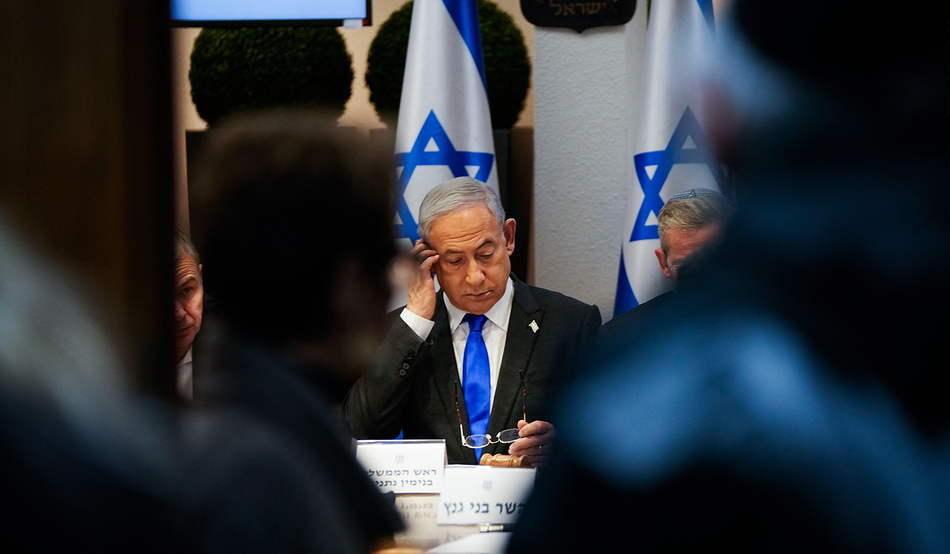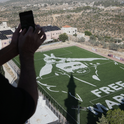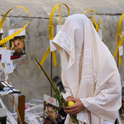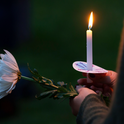It’s the moderates you need to watch out for. When they turn, the effect can be much more devastating than anything done by the shouters and flag-wavers.
That was my reaction to a column about Israel that Matthew Parris recently wrote for the Times in which he called for meaningful sanctions to be applied by the international community with the explicit aim of getting rid of Benjamin Netanyahu and his rotten government.
Parris embodies for me an almost Orwellian notion of Britishness—that’s Orwellian in the sense of his essay, The Lion and the Unicorn, rather than the dystopian nightmare of 1984, (and, to be precise, he was writing there about Englishness rather than Britishness, but still.)
For decades since quitting as a Tory MP in 1986, Parris has written columns that stand for decency, fair play, moderation, individualism; humour and restraint; as well as liberty in thought, deed and expression, and an attachment to the past and tradition, tempered by tolerance and pragmatism. He voted Lib Dem in 2019, unable to stomach the unprincipled populism of Boris Johnson, but considers himself a lifelong conservative.
So consider this reasonable man and ponder his sober call for sanctions against Israel, born, he says, out of his personal experience of how sanctions worked against apartheid South Africa, a country in which he was born and raised.
He admits that he had initially been opposed to sanctions in the latter case, but ended up convinced of their necessity. And he adds: “Even that wicked regime did not try to extinguish the identity, or slaughter in their tens of thousands, the black race or raze their homelands to the ground.”
If that came from the pen of Owen Jones, Ken Loach or Jeremy Corbyn, Israel’s defenders would shrug. They would say that, wouldn’t they? And, indeed, the very next day’s Times Letters page included the now-routine denunciation of any forthright critic of Israel as parroting antisemitic propaganda.
But shrugging off rational, moderate voices seems to me a mistake. The lines of Robbie Burns come to mind: "O wad some Pow’r the giftie gie us/To see oursels as ithers see us!/It wad frae mony a blunder free us,/An’ foolish notion."
Nearly 25 years ago I spent a day in Gaza, as part of a trip to better understand the conflict between Israelis and the Palestinians. It’s a challenging story to edit if you’ve never troubled to travel around the contested lands and speak to people on all sides.
The great majority of the Israelis I met had never been to Gaza and had little understanding of the living conditions there—and, you might say, vice-versa. Decent people over dinner would confidently opine about a world beyond their experience. Driving back to the cosmopolitan comfort of Jerusalem after my day amid the poverty and hopelessness of Gaza, I reflected on the gulf between the powerful and the powerless; the comfortable and the comfortless.
It’s not a long drive—not much more than the journey from Soweto to the northern suburbs of Johannesburg, a journey I had taken in the dark days of apartheid—and I’m afraid the parallels were too pointed to ignore. That night I dined with David Grossman, probably Israel’s leading novelist, whose own son would later be killed in southern Lebanon. He began the meal by saying: “You have been in Gaza today. Then, I’m afraid, you will be very angry.”
Five years later, the Guardian’s Jerusalem correspondent, Chris McGreal—also a former South Africa correspondent—wrote a two-part, 15,000-word series carefully examining the parallels between the apartheid system he had experienced up close in South Africa and Israel, where he had reported with some distinction for four years.
McGreal had said what was then unsayable, and all hell broke loose in the form of an organised and ferocious backlash. Despite a 38,000-word complaint to the then regulator, the Press Complaints Commission, no factual fault could be found with the piece, except for a minor correction to a politician’s title.
More wounding was a rebuttal from Benjamin Pogrund, the distinguished former deputy editor of the Rand Daily Mail, a paper with a notable track record of fighting apartheid. By then having lived in Jerusalem for 26 years, Pogrund was unequivocal: “No equation is possible."
But the wheel turns and just over two years ago Pogrund ate his words. Having, as he put it, “argued with all my might" against the accusation that Israel was an apartheid state, he now had to bluntly acknowledge: “We are at the mercy of fascists and racists (both carefully chosen words) who cannot, and will not, stop…. the right-wing government is taking the country into institutionalised discrimination and racism. This is apartheid.
“Israel 2023, South Africa 1948. I’ve lived through it before: power-grabbing, fascism and racism—the destruction of democracy. Israel is going where South Africa was 75 years ago. It’s like watching the replay of a horror movie."
I doubt Pogrund’s heartfelt words cut much ice, even though they came from the most loyal possible friend of Israel. This was two months before Hamas’s heinous attack of 7th October but even then, mere words had lost much of their power to slice through the hardened polarised battlelines of Israeli society.
But people should have listened, because Pogrund ended with this warning: “Israel is giving a gift to its enemies in the Boycott, Divestment and Sanctions (BDS) movement and its allies… They have long distorted what is already bad into grotesqueness, but will now claim vindication. Israel is giving them truth.”
And here we are, three years later, and it is not only Israel’s enemies who are demanding sanctions: it’s their friends. It's the moderates who have turned—and all the signs are that they, too, will be ignored.
Words no longer count—whether from newspaper columnists, humanitarian organisations or from world leaders. There’s no point in telling Israelis that their government is trashing their nation’s good name or that Israel is becoming a pariah state. No one in that country’s government cares.
That is why Parris, and many other people who would previously have recoiled from such measures, now argue that meaningful sanctions are the only available response. “Otherwise,” as he writes, “we shall look back on these years baffled and ashamed that we let such horrors proceed without any serious intervention on our part.”
Is anyone listening?













